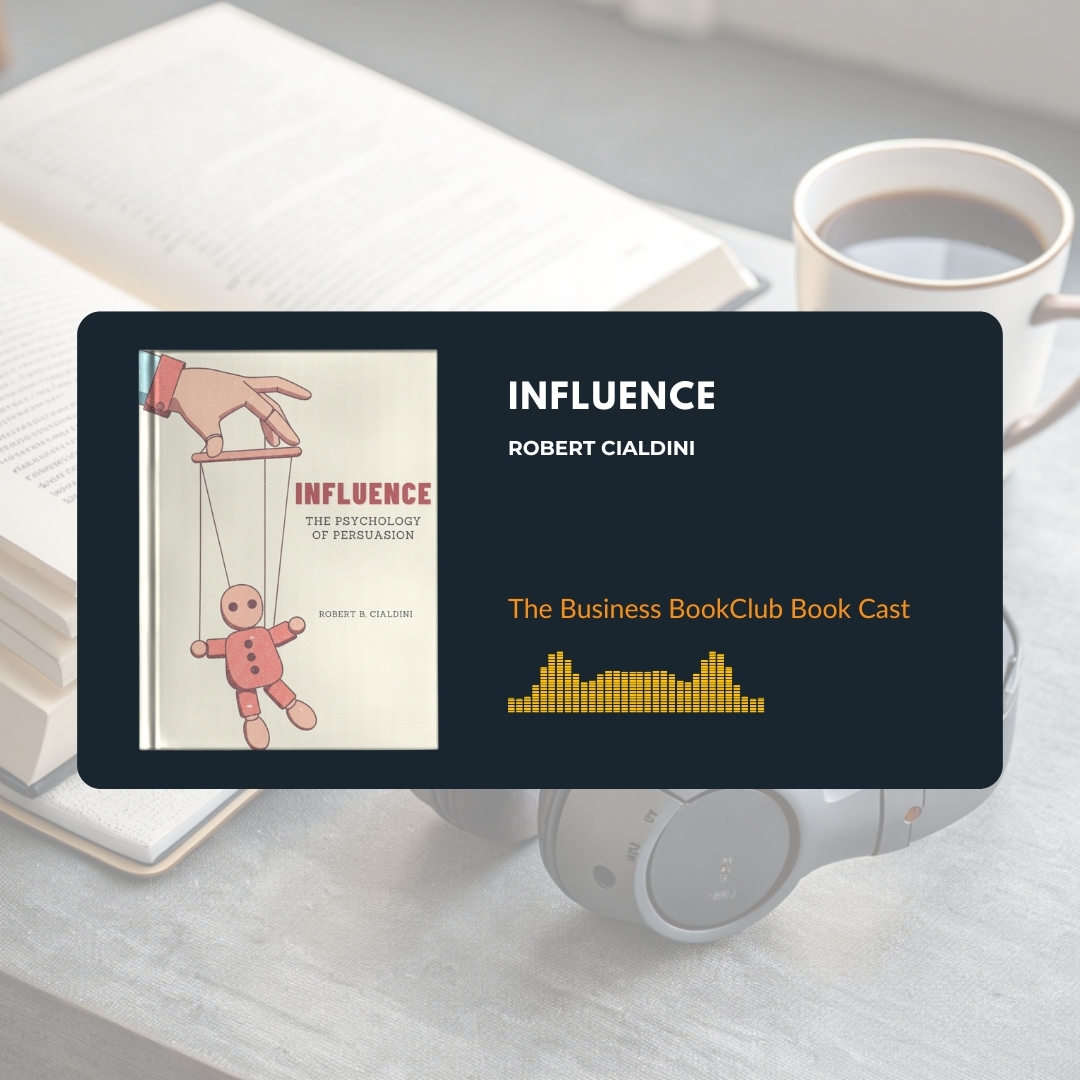Ep 29 Why We Say Yes: Unlocking Robert Cialdini’s Influence for Business Growth
- Author
- The Business BookClub
- Published
- Mon 07 Apr 2025
- Episode Link
- https://businessbook-club.podbean.com/e/ep-29-why-we-say-yes-unlocking-robert-cialdini-s-influence-for-business-growth/
In this episode of The Business Book Club, we explore one of the most iconic and influential books in business psychology: Influence: The Psychology of Persuasion by Robert Cialdini. This isn’t just another theory-laden text—Cialdini spent three years embedded with real-world “compliance professionals” like salespeople, fundraisers, and advertisers to uncover what truly drives human behavior. The result? A practical guide to understanding how and why people say “yes”—and how to use that knowledge ethically in business.
We walk through Cialdini’s six principles of persuasion—Reciprocity, Commitment and Consistency, Social Proof, Liking, Authority, and Scarcity—with modern-day applications and actionable insights for entrepreneurs, marketers, and business leaders. Whether you're trying to grow your email list, close more sales, or simply become a more conscious consumer, this episode is packed with practical wisdom and eye-opening examples.
Key Concepts Covered
Reciprocity: Give First, Receive Later
We’re wired to return favors—whether it's a free sample at Costco or a PDF guide on your landing page. Offer real value first and create goodwill that encourages people to engage or buy later.
Commitment and Consistency: Start Small, Build Big
From signing up for a newsletter to taking a quiz, small actions prime your audience for bigger commitments. Think “foot in the door,” but make it ethical and intentional.
Social Proof: We Do What Others Do
Testimonials, reviews, and visible community support create trust. But beware of the bystander effect—use clarity and specificity to direct attention or action in uncertain situations.
Liking: People Say Yes to People They Like
We tend to trust those who are similar to us or who compliment us sincerely. Build rapport with your audience through relatability, kindness, and thoughtful gestures—like a handwritten thank-you note or personalized message.
Authority: Credibility Sells
People respond to perceived authority. Use this principle ethically by showcasing your expertise, credentials, and client success stories without over-inflating your claims.
Scarcity: Limited = Valuable
Whether it’s a one-time offer, limited availability, or exclusive insight, scarcity drives urgency. But use it genuinely—false urgency can backfire and erode trust.
Actionable Takeaways
✅ Offer real value upfront to trigger reciprocity
✅ Get your audience to take small steps that lead to larger engagement
✅ Use testimonials and social proof strategically on your website or landing pages
✅ Build likability through authenticity, similarity, and small gestures
✅ Establish your authority by sharing your background and results
✅ Create ethical urgency by highlighting what’s genuinely limited or unique
Top Quotes
📌 “Trigger features are like shortcuts in the brain—and compliance professionals know exactly how to use them.”
📌 “The power of a simple word like ‘because’ can be surprisingly persuasive.”
📌 “These principles aren’t inherently good or bad—it’s all about how you use them.”
Resources Mentioned
- Influence by Robert Cialdini – Get the book here
- The Weekend Book Club: Explore deeper insights with our sister channel, including a detailed video summary and a free downloadable Ebook summary of this book.
Next Steps
Ready to level up your influence—ethically? Pick one of Cialdini’s six principles and experiment with how it can be applied in your business this week. Test your copy, offers, or lead magnets using reciprocity or social proof and track what resonates most with your audience.
If you enjoyed this deep dive, don’t forget to subscribe to the podcast and check out our sister channel, The Weekend Book Club, for even more insights and game-changing ideas of Robert’s.
#RobertCialdini #Influence #PsychologyOfPersuasion #Entrepreneurship #SalesPsychology #BehavioralMarketing
